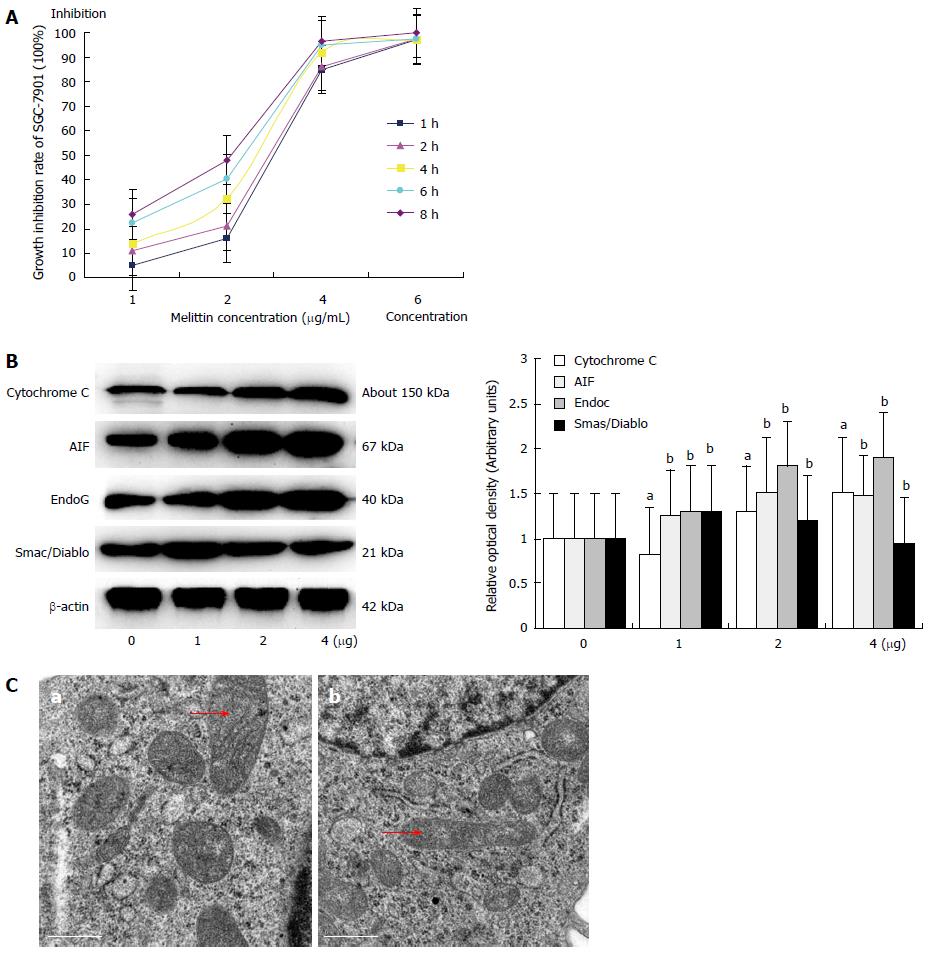Copyright
©The Author(s) 2016.
World J Gastroenterol. Mar 21, 2016; 22(11): 3186-3195
Published online Mar 21, 2016. doi: 10.3748/wjg.v22.i11.3186
Published online Mar 21, 2016. doi: 10.3748/wjg.v22.i11.3186
Figure 1 Melittin alters the release of mitochondria proteins in SGC-7901 cells.
A: Growth inhibition of a human gastric cancer cell line (SGC-7901) by melittin. Numbers 1-6 indicates the melittin concentration used (1-6 μg/mL) to inhibit the growth of the gastric cancer cells after 1, 2, 4, 6, or 8 h; B: The expression of Cytochrome C, apoptosis-inducing factor (AIF), endonuclease G (EndoG), second mitochondria-derived activator of caspases (Smac)/direct IAP binding protein with low isoelectric point, pI (Diablo) detected by western blot. (aP < 0.05 vs the control group; bP < 0.01 vs the control group); C: Ultra microstructure of mitochondria after incubation with 4 μg/mL melittin [a: SGC-7901 control group; b: SGC-7901 cells incubated with 4 μg/mL melittin for 4 h; (scale bar 0.5 μm, × 6600)]. The arrow is the mitochondria.
- Citation: Kong GM, Tao WH, Diao YL, Fang PH, Wang JJ, Bo P, Qian F. Melittin induces human gastric cancer cell apoptosis via activation of mitochondrial pathway. World J Gastroenterol 2016; 22(11): 3186-3195
- URL: https://www.wjgnet.com/1007-9327/full/v22/i11/3186.htm
- DOI: https://dx.doi.org/10.3748/wjg.v22.i11.3186









